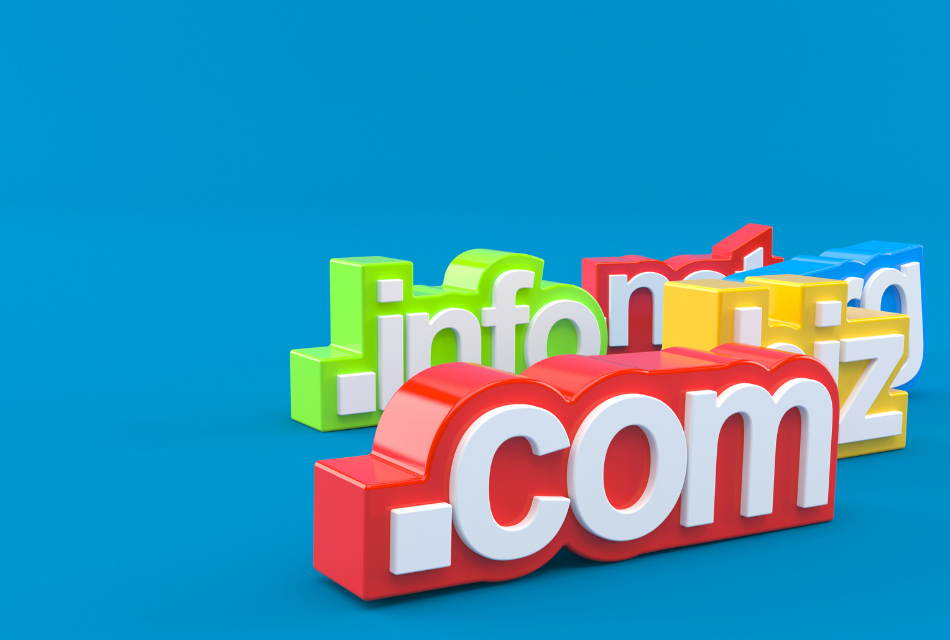TL; DR This article explains why social media platforms can never replace owning a domain and website. While Facebook, Instagram, or Twitter offer quick access to billions of users and easy promotion, they come with major limitations: you don’t own your account, your content can be blocked or deleted, and ads from competitors or unrelated brands can appear next to your posts. By contrast, a domain and website give you full control over content, design, data, and customer relationships. Investing in your own online space ensures long-term independence, better branding, and secure client communication. Social media should support, not replace, your website.
At the beginning of running a business, the owners of smaller companies or personal brands often wonder whether or not to invest in their domain and website. Some believe that social media profiles are enough to present the brand and products. The platform on which they focus attention depends on the industry – restaurants, manufacturers of hand-made products and models promote themselves on Instagram and Facebook. Young politicians and leaders choose Twitter.
From the perspective of a businessman, social platforms have a lot of advantages:
• it is easy to reach clients because billions of people have accounts,
• users use social media every day and they are accustomed to it,
• managing business profiles is easy and one can connect it with managing advertisements.
Is it wise to solely rely on social media while building a brand? Quick answer: no.
Below you will find arguments that should convince you that it is worth investing in a domain name and your website, even if you want mainly to communicate with clients through social platforms.

Think who owns your account
The Facebook account doesn’t belong to you, it belongs to Facebook. It is a similar case with Twitter, Instagram, and every other social platform. Each of these companies can, at any moment, block or delete your profile. It is enough that the platform’s employees recognize that you break the regulations. This has happened to well-known businesses and public figures alike. In 2021, Facebook and Instagram banned former US President Donald Trump — demonstrating that no account, regardless of its following, is protected from platform decisions. Businesses face the same risk at a smaller scale: accounts get suspended, sometimes without explanation, sometimes without appeal. The brands that survived these shutdowns without major damage were the ones that had their own website and domain as a primary communication channel — not a social media profile.
Are you aware that you give away the right to freely use the content and pictures placed on your profile to the platforms? You do not believe it? See the terms of service, e.g. of Facebook. You can obviously mark pictures or other content, however, if some user wants to modify and share them – he has the right to do so.
Since the platforms can freely manage all the content, they show only the most interesting ones to the users to keep them as long as possible and show more advertisements. It means that it is not you who will benefit from the work that you put into the preparation of good and interesting materials. It will be Facebook, Instagram, or Twitter.
What about content on forgotten platforms (e.g. Myspace)? Even if the pages still exist, their content seems to be irretrievably lost. Isn’t it better to create valuable content in your own sources and not be dependent on the popularity of the given medium?
Social media should support the communication you have with a client on a website – not replace it. Place the basic, important information on the brand website; on Facebook, Twitter, or Instagram post an announcement or summary and links to your own sources.
Who is the owner of a domain and a website?

You cannot buy ownership of a domain, but you can “lease” it from an accredited domain registrar — organizations authorized by ICANN (Internet Corporation for Assigned Names and Numbers), the global body that oversees domain name registration worldwide. You become its subscriber, which entails both rights and obligations. The registry is an actual operator of a domain, however, it gives the subscriber the possibility to use the chosen name at this domain, for a specific time. The condition is the payment of a subscription fee and complying with the regulations and law.
The period of “lease” depends on the rules adopted by the register but usually, it lasts from a year up to 10 years. You can register a domain immediately for a decade and then extend its validity for subsequent years or pay for shorter periods.
Although a website is viewed under a specific domain, it is independent. The files of a website are placed on a server whose maintenance is usually paid. Whether you create it by yourself or outsource its construction, the website belongs to you. Pay attention to paying for a server/web hosting on regular basis. Without this service, the page will not appear on the web.
Control the look, usability, and society
Social media accounts look the same even if you have your logo in the picture and a beautiful graphic in the background. Until a client looks carefully at your profile, they won’t notice that it’s refined and interesting.
Your website is the place where you can distinguish yourself from the competition. When you create it, you influence its look and functionality. You are also in control of the content and its placement. This fact reveals another weakness of social media.
Imagine the following situation: you manufacture ecological, vegan cosmetics. Your clients are mostly vegans who take care of the environment. One of them is an activist and plans a protest. Recently, he was watching the website of a slaughterhouse and sent links to friends to organize a picket in front of the plant. After some time, he visits your Facebook page and comes across an advertisement for a vacancy at a slaughterhouse with a large picture of a dead animal, just under your post on the newest line of cosmetics. His friends see the same advertisement. Do you think they will remember the information about the new cream?
The client is probably aware that the fact that the advertisement pops out is connected to his visit to the slaughterhouse. However, emotions are the key and in such a situation, they work to your disadvantage.
The example with the slaughterhouse is rather a drastic one, but it is easy to imagine the situation where next to your post about a new product, an advertisement for your competition pops out. We would also like to avoid such a “company”.
While posting pictures or graphics on different platforms, you probably noticed that its optimal sizes are changing from time to time. If you rely solely on social media, you must take care of every detail and regularly check whether the parameters of graphics didn’t change. What is more, modifications to the graphic design of a platform can be problematic. They particularly affect the brands using a platform’s layout as an element of a profile. In their case, every change of the platform’s look will mean additional work in adjusting the account to the introduced novelties.
What social media are protecting and revealing?
Businessmen want to know the e-mail of a potential client to carefully protect the marketing or business strategy. Meanwhile, in social media, hidden and revealed elements represent exactly the opposite pattern. You don’t have access to the phones and emails of the brand’s fans. Besides, the competition can design an advertisement that will be targeted at the people similar to the users who like your profile. This means that other companies can use the fruits of your work and good ideas which brought fans.
The lack of sharing sensitive data of users is understandable – the platforms want to protect them. The question is: are the social platforms able to properly protect the information about recipients? History has shown repeatedly that they cannot. The Cambridge Analytica case exposed how data from tens of millions of Facebook users was harvested and used to influence elections — and that was nearly a decade ago. More recently, Meta has faced multiple FTC investigations and billion-dollar settlements over data misuse, while TikTok has been under US congressional scrutiny over how user data is stored and accessed. The pattern is consistent: platforms collect far more data than users realize, and control over it remains in the platform’s hands, not yours.

On your website, you take care of your client’s data security. It is a large responsibility but thanks to that, you can collect desired pieces of information about your users — in compliance with applicable privacy regulations such as the CCPA (California Consumer Privacy Act) or other data protection laws in your jurisdiction. By obtaining, for example, the information about the date of birth, you can send him birthday wishes with a gift in a form of a discount code or some trinket. Building your mailing base will allow you to sustain much better relations with clients and to personalize your offer.
By creating your website you also protect the basis of your company: business and marketing strategy. The competition may check what products and solutions you suggest on your website, but the ways of acquiring clients and direct communication with them will remain a secret.
Why social media won’t replace domains?
If you don’t mind that you are not an owner of a business profile, that it can be blocked or deleted without a warning; that you don’t influence how the account looks and in what circumstances the posts appear, you can freely communicate with recipients only via social media. However, if you respect clients and your work and you want to control the narrative of your brand, you should invest in your domain and a website. Use social media platforms as an additional medium for promotion and contact.
By having a website on your domain, you can avoid problems that are connected with running a business profile on social media. You have full control over your brand message, content, ads, website design, and customer data. The presence of a company depends only on you: how you secure a website, whether the posted content is legal and whether you regularly pay for the renewal of a domain. Creating a website on your domain means, de facto controlling the company’s future. Isn’t that what a beginner businessman cares the most?
FAQ
1. Isn’t a social media profile enough for promoting my business?
No. While social platforms provide visibility, you don’t own your profile. It can be blocked, deleted, or limited at any time, which puts your brand at risk.
2. Who owns my content on social media?
Platforms like Facebook and Instagram gain rights to use and distribute the content you upload, according to their terms of service. On your own website, you retain full ownership.
3. What makes a domain and website more reliable?
With your own domain and website, you control the design, usability, customer data, and messaging. The presence of your business depends solely on you, not on the rules of a third-party platform.
4. Should I stop using social media if I have a website?
Not at all. Social media should complement your website by directing traffic and sharing updates, but your main communication and branding hub should always be your own domain.